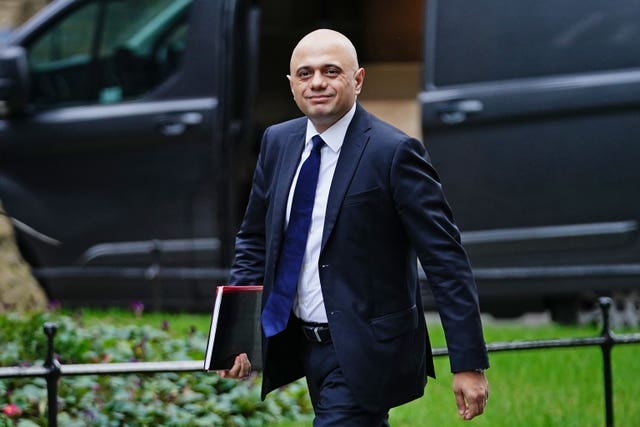Mandatory vaccine rules for health and social care staff scrapped from mid-March
Health Secretary Sajid Javid said the policy is no longer proportionate.

Health and social care workers in England will no longer be required by law to be vaccinated against Covid-19, after a consultation saw the vast majority of people support the move.
Mandatory Covid-19 vaccines came into force for care home staff in November last year, and were due to be introduced for frontline NHS and wider social care staff in regulated settings from April 1.
Earlier this year, Health Secretary Sajid Javid told the House of Commons that he believed it was “no longer proportionate” to require vaccination as a condition of deployment under law.

The Government has now confirmed the regulations making vaccination mandatory as a condition of deployment in health and social care will be revoked on March 15.
It said that when the original decision was taken to make it a legal requirement, Delta was the dominant variant of the virus but that has since been replaced by the less severe Omicron variant.
The decision was welcomed by the Royal College of Nursing (RCN), while Unison said many staff who left care homes due to the requirement are unlikely to return to their jobs.
The Government said 90% of responses to a public consultation launched last month supported the removal of the legal requirement.
Mr Javid, in a written statement on Tuesday, said that it had been the “right policy when the original decision was taken, but that it is no longer proportionate in the light of the most recent clinical evidence regarding the current Omicron variant of Covid-19, which is intrinsically less severe than Delta, and the high rate of vaccination across the population”.
But he added that despite the change, he still considers it “a professional responsibility for health and care staff, and others who work in the health and social care sectors, to be vaccinated”.
He said 92% of the NHS workforce and 95% of care home staff have received two doses of a Covid-19 vaccine, and 89% of home or domiciliary care staff have so far received at least one dose.
He said the Government is “committed to working with the health and social care sectors to engage with those who are yet to make the positive choice to be vaccinated”.
RCN general secretary and chief executive Pat Cullen said the change was the “right decision”, adding: “Holding the threat of losing their jobs over the heads of the small minority of staff who had not been vaccinated was the wrong approach and this decision will be welcomed by those whose jobs were at risk.”
But she said it has come “too late for those who have already lost their jobs”.
She added: “Ministers must now urgently address the health and social care workforce crisis which is undermining nursing staff’s ability to care safely for their patients. There are tens of thousands of nursing vacancies across those services.”
Gavin Edwards, head of care at Unison, said: “There were always better ways of upping the jab rate in care. Making the vaccine mandatory meant thousands of experienced staff quit care homes. These were workers the struggling sector could ill afford to lose.
“Many won’t go back either. They’ve found better paid, less stressful work elsewhere. Ministers could go some way towards making up for the distress caused by ensuring every care worker is paid at least the real living wage. That would begin to solve the current staffing crisis.”





